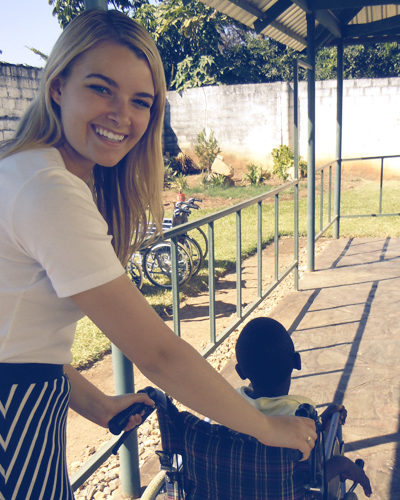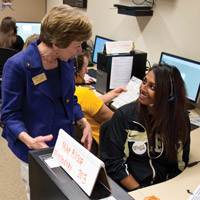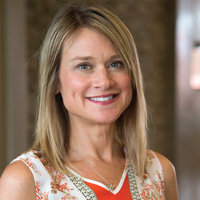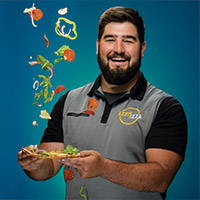Learning and Serving in Zambia

Sophomore Megan O'Connell transports a child back to physiotherapy after a hearing test at Cheshire Homes. (Photo provided by Lata Krishnan)
Just as in real life, the students learned that things don’t always go as planned. However, their ability to be flexible and work as a team made the clinics successful.
“Every day was unpredictable and also wonderful,” says senior Kelsey Kerkhove. “I learned that patience is key, especially working with younger kids. Creativity is crucial, and you must be on your toes to keep the child you are working with involved and attentive.”
For most students, this experience was their first time to examine patients — and to add to the challenge, most were children who didn’t speak English. In addition to overcoming the language barrier with their young patients, the students also saw children with disabilities and learned to adapt testing as needed.
Senior Jordan Potosky says her experience at Cheshire Homes, a rehabilitation center and school for children with disabilities, was a game changer. She interacted with kids who had cerebral palsy, were missing limbs, or had some other sort of physical or cognitive disability.
“I will never again take for granted the things I am so fortunate to have, like a functioning pair of legs,” she says. “The children had such a positive and inspiring outlook on their disability — they carried on their day like they could do anything in the world. I had such a great time with them that I could see myself becoming very passionate and directing my career toward working with disabled children.”
Planning for the next service-learning trip to Zambia is already underway, and Krishnan plans to expand the program by adding a speech pathology component. For the summer 2014 program, she will be joined by Christi Masters, clinical assistant professor and speech-language pathologist. Krishnan says supervision of students is critical during the clinical activities so it’s difficult to increase the number of students participating.
“What Beit CURE and Zambia as a whole need is knowledge, and for those of us who have visited their country to be ambassadors,” says senior Emily Zinfon. “They need people who can train others to do the basics like hearing screenings so that even very rural areas can have access to this kind of care.”
A blog that details the students’ experiences while they were in Zambia is available to read at http://slhsinzambia.wordpress.com/.











